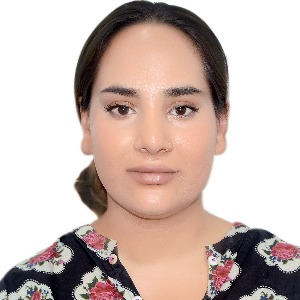Title : A retrospective cohort study of post operative complications in mako robot arm-assisted and conventional knee arthroplasty
Abstract:
Background: Robotic-assisted Total Knee Arthroplasty (TKA) has gained popularity as a precision-driven alternative to conventional TKA, with purported benefits in alignment accuracy and tissue preservation. However, its impact on early postoperative complications and functional outcomes remains under critical evaluation. This retrospective cohort study aimed to compare short-term clinical, laboratory, and functional outcomes between patients receiving Mako robotic-arm assisted TKA and those undergoing conventional TKA.
Methods: A total of 140 patients (70 per group) undergoing unilateral TKA between January 2021 and December 2023 at Humanitas IRCCS, Rozzano, Italy, were analyzed. Functional outcomes were assessed using the Tegner-Lysholm Knee Scoring Scale (TLKSS) at one and six months postoperatively. Secondary variables included Range Of Motion (ROM), Numeric Rating Scale (NRS) for pain, C-Reactive Protein (CRP) levels, hemoglobin concentration on postoperative day 3, and postoperative complications such as swelling and infection. Independent-samples t-tests, ANOVA, chi-square tests, and multiple regression analyses—including Lasso and Ridge regression—were employed. Machine learning regression models were also used to determine key predictors of functional outcomes.
Results: The Mako group demonstrated higher TLKSS scores (mean = 87.9 ± 11.2) compared to the conventional group (mean = 83.5 ± 13.4; p = 0.04 after multivariate adjustment). ROM was also greater in the robotic group (106.3° ± 12.5° vs. 101.7° ± 14.8°), with statistical significance achieved in regression analysis (β = 0.21, p = 0.036). CRP levels were significantly lower in the robotic group (mean = 7.3 ± 3.5 mg/dL) than the conventional group (9.6 ± 4.2 mg/dL; p = 0.017). Hemoglobin levels showed no significant difference (Mako = 11.1 ± 1.3 g/dL, Conventional = 10.7 ± 1.5 g/dL; p = 0.12). Swelling occurred in 21.4% of Mako patients vs. 38.6% in conventional patients (p = 0.035). Infection rates were lower in the Mako group (6.3% vs. 10.5%), though not statistically significant (p = 0.18). Lasso regression identified swelling, infection, and CRP as the strongest negative predictors of TLKSS, while ROM was positively associated. The Ridge model achieved the best fit (R² = 0.61).
Conclusion: Robotic-assisted TKA using the Mako system is associated with improved short-term functional outcomes and reduced postoperative inflammation and swelling. While not a dominant predictor in isolation, robotic technique amplifies recovery benefits.




